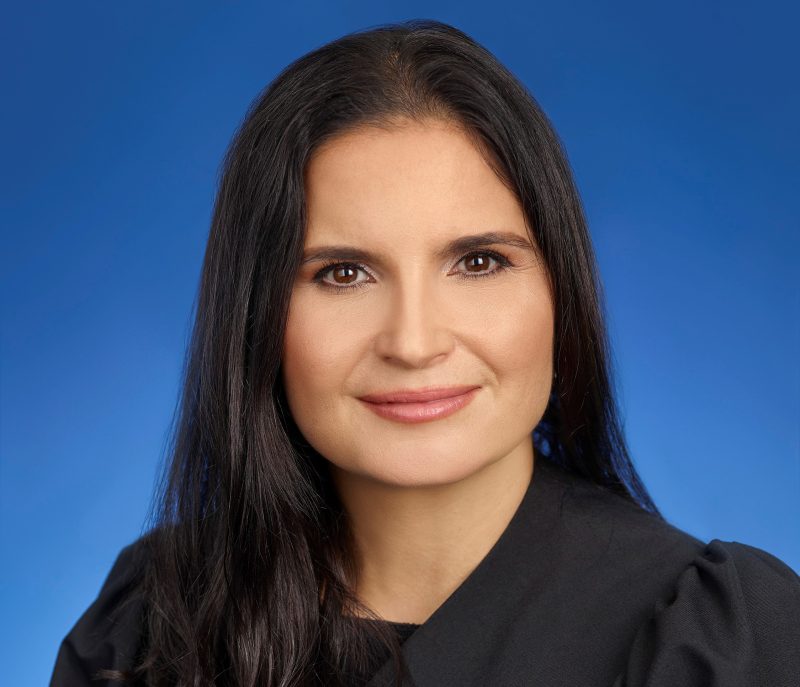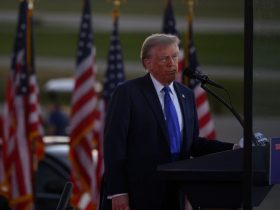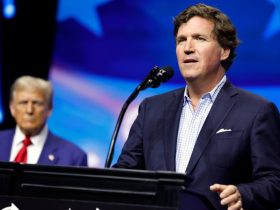FORT PIERCE, Fla. — U.S. District Judge Aileen M. Cannon signaled Friday that Donald Trump’s legal team had not convinced her FBI agents offered false information to justify searching Mar-a-Lago — a potential blow to the former president’s efforts to disqualify key evidence in the classified documents case against him.
Trump’s attorneys asked Cannon to grant what is known as a Franks hearing, a chance to show that the government intentionally misled a magistrate judge when seeking a warrant to search for classified material at Mar-a-Lago, Trump’s Florida home and private club, more than a year after he left office.
The defense lawyers argued, among other things, that Justice Department officials should have written on the affidavit that sitting presidents are unique because they do not require security clearances to view sensitive government information. Cannon was skeptical.
“But he is post-presidency,” she told Trump lawyer Emil Bove, adding that she didn’t see how the agent did anything wrong in this instance. “I have a hard time seeing what more language is needed.”
If Cannon agreed to hold a Franks hearing, and ruled in the defense’s favor after that hearing, she could toss the evidence that investigators collected when they executed the search warrant — the bulk of the evidence in the classified documents case.
The bar for allowing such a hearing is high. Judges typically require the defense to show significant evidence that investigators intentionally falsified information before granting one.
Trump, the former president and presumptive Republican nominee in this year’s election, faces 40 counts of willfully retaining classified information and obstructing the government’s efforts to retrieve them, national security violations that typically would bring prison upon conviction.
Besides suggesting the government of falsified information, his lawyers argued Tuesday that the Mar-a-Lago search was politically motivated and too broad, resulting in agents seizing personal items stored along with the classified materials — a theory he has pushed in more bombastic and conspiratorial terms on social media and elsewhere.
The session capped three days of hearings in Cannon’s courtroom. In the morning, she held a closed-door hearing on Trump’s efforts to bar at trial the audio notes that investigators got from one of Trump’s former attorneys, Evan Corcoran. Prosecutors have argued the audio notes are exempt from attorney-client privilege because of the crime-fraud exception, which says communications that may have been made in furtherance of committing a crime may not be shielded.
The judge also held hearings on Trump’s motion to dismiss the entire case against him over what he argued is the unconstitutional funding and appointment of special counsel Jack Smith. And she heard arguments on prosecutors’ request for new restrictions on Trump’s public statements that would bar him from publicly attacking law enforcement officials.
She did not issue rulings from the bench on any of the motions, which means that written decisions could come at any time.
On Tuesday, Trump’s team argued that Mar-a-Lago is so enormous that investigators should have conducted a more narrow search instead of examining the living quarters of former first lady Melania Trump and their son.
Cannon seemed interested in the government’s rationale in searching Barron Trump’s room but noted that it was unclear what remedies Trump might be seeking, since investigators did not take any materials from the room.
Trump and his family were not at the property at the time of the search.
“You agree that paperwork is a sort of thing that can be located anywhere?” Cannon asked Bove.
Prosecutors defended the warrant and said they searched rooms that Trump had access to — skipping, for example, rooms where guests stayed. They said they had evidence that the boxes with sensitive information had been moved while the government was seeking them and could have been in many places on the property, including his son’s room.
“At one point, the boxes were in a bathroom in a shower,” assistant special counsel David Harbach told Cannon.
Harbach said it was preposterous that Trump’s team could claim that the affidavit seeking a search warrant was misleading when investigators allowed Trump’s then-attorney to attach a letter to the application, which the magistrate judge reviewed before granting the warrant.
“Mr. Trump had an extraordinary opportunity, quite rare, unprecedented in my experience,” Harbach said, “to say whatever he wanted to … to the search warrant that was presented to the magistrate.”
The hearing ended on a contentious note as prosecutors’ frustration with the defense arguments seemed to boil over. Harbach complained about what he called Bove’s “attempt to hijack the hearing,” but Cannon, who had tangled with Harbach a day earlier, said he had nothing to worry about.
“There is no hijacking going on,” Cannon said of the hearing. “It’s about to end.”
“It’s not fair,” Harbach said before getting cut off.










